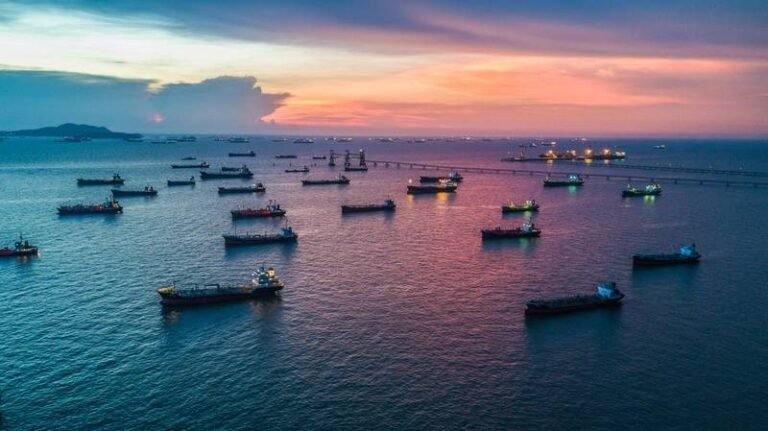Supertankers Alter Course Near Iran Following U.S. Military Strikes
Recent U.S. military strikes on Iran have caused at least two supertankers to make U-turns near the Strait of Hormuz, according to shiptracking data. The escalating violence in the region has prompted vessels to speed up, pause, or change their journeys as tensions continue to rise.
Concerns have been raised over the potential closure of the strait between Iran and Oman, through which approximately 20% of global oil and gas demand flows. With Washington’s decision to join Israel’s attacks on Iran, fears of retaliation and supply disruptions have led to forecasts of oil prices surging to $100 a barrel.
Both Brent and West Texas Intermediate crude reached fresh five-month highs on Monday amid the uncertainty in the region. Investors are closely monitoring the situation and assessing the risks to global oil supply.
As a result of the heightened tensions, shipping rates for supertankers have more than doubled in a week, exceeding $60,000 a day, according to freight data. The Coswisdom Lake, a very large crude carrier (VLCC) supertanker, and the South Loyalty, another VLCC, have both made U-turns near the strait in response to the evolving situation.
Shipowners and shipping companies are adjusting their routes and strategies to navigate the area safely. Vessels are being instructed to minimize time spent inside the Strait of Hormuz, with some opting to sail closer to Oman or remain in the Gulf of Oman to avoid potential conflicts.
Japanese shipping firms Nippon Yusen and Mitsui O.S.K. Lines continue to transit the strait but are taking precautions to minimize risks. Oil traders and analysts have been warned of possible shipping delays as vessels wait for their turn outside the area.
It is essential for shipowners to diversify sources of supply and shipping routes to mitigate risks during times of geopolitical instability. Learning from past disruptions like the Red Sea incident can help in preparing for potential challenges in the future.
While Iran’s parliament has approved a measure to close the strait, any such decision would require further approval from the Supreme National Security Council. Iran has threatened to close the strait in the past but has not taken such action yet.
The situation in the region remains fluid, with shipping companies and traders closely monitoring developments to ensure the safe passage of vessels through critical waterways.
(Source: Reuters – Reporting by Siyi Liu and Trixie Yap in Singapore and Jonathan Saul in London; editing by Tony Munroe and Jason Neely)

